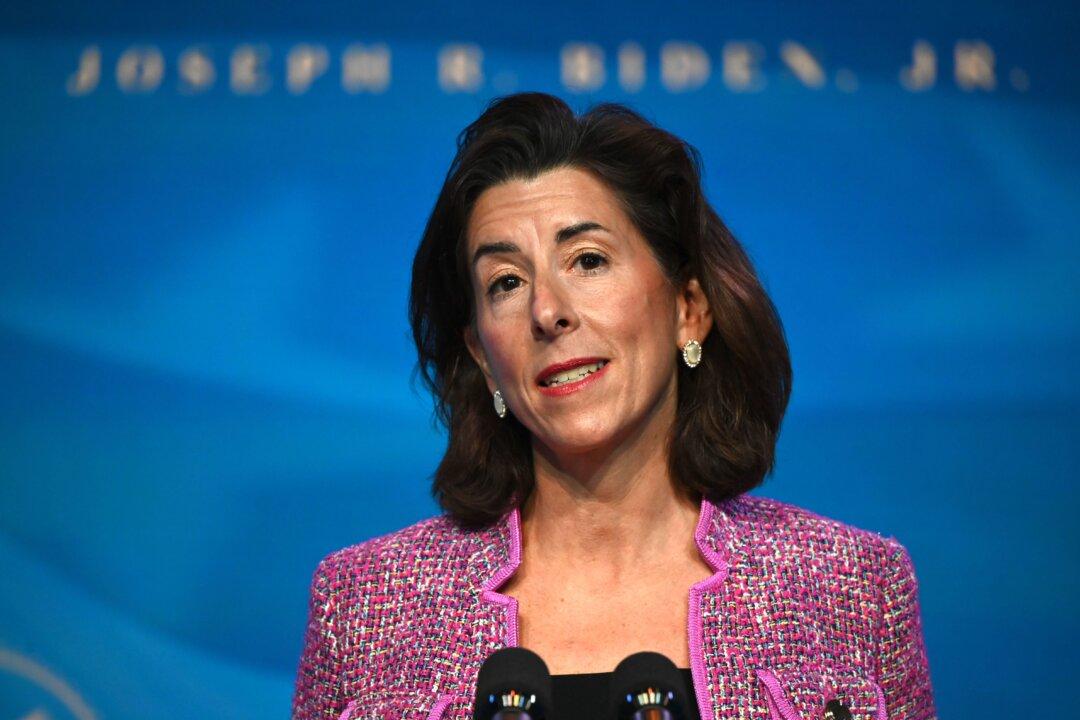A group of House Republicans on Tuesday called on their fellow Senate colleagues to delay the confirmation of President Joe Biden’s pick for Commerce secretary, Gina Raimondo, until the president clarifies whether he backs keeping Huawei on a restricted trade list.
Rep. Michael McCaul (R-Texas), the top Republican on the House Foreign Affairs Committee, led the coalition of almost two dozen Republicans in releasing a statement that outlines the threat they say the Chinese telecoms equipment giant poses to national security.





